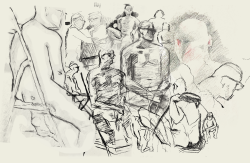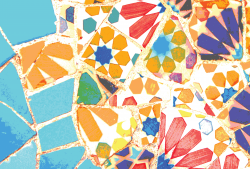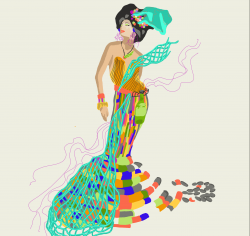South Korean director Bong Joon-ho has been making critically-lauded films for over a decade, striking international box office gold in 2006 with The Host, the highest grossing South Korean film of all time. His latest movie, Mother, follows one woman’s struggle to prove her mentally-challenged son’s innocence after he is accused of murder. Through a translator, Bong discussed Western cinema, the role of sex in film, and the importance of actors’ input with the Voice’s Mark Stern.
In Mother, there’s a very strong Hitchcockian influence in terms of story and style. Are you inspired by Hitchcock, or other classic directors of suspense?
I do like Hitchcock quite a bit … With Mother, I wasn’t trying to be conscious of Hitchcock and his style, but as we were making the movie, I noticed that some elements were very similar to Hitchcock’s films. I watched Psycho quite a few times while working on Mother, and the mother-son relationship there really contributed to the connection between the mother and son in my film.
Mother has strong incestuous undertones, but the exact nature of the mother-son relationship is never made explicit. How did you decide where to draw the line between what is shown and what must be inferred?
I did want to make the audience guess whether or not the two were crossing the line, but more importantly, I wanted to focus on the fact that both the mother and the son are incapable of having normal sexual relations. You can divide all the characters in the film into two groups: those who are capable of having sex and the ones who are not. The mother and the son are both incapable … It’s not that they don’t desire sex; they just aren’t able to have it. Conversely, the murder victim has sex all the time, yet she is forced to do it for a living, as much as she despises it … and so her sexual relations are not normal, either … Much is revealed about the characters through their bedroom activities.
Although the tone of Mother is extremely dark, there’s a strong element of humor throughout the film. What do you think is the role of comedy in a dramatic film?
Having the comical scene break up sad or scary moments [is] as instinctive as putting one foot in front of the other while walking. I also think that unexpected humor makes movies much more realistic. In our daily lives, we all experience that combination of many distinctive feelings coming together at odd times. We may be tempted to giggle at a funeral, or find ourselves incredibly lonely at a party. It’s a phenomenon that I can’t help but include in my films.
The performances in Mother are extremely naturalistic. How much freedom do you give your actors to interpret their characters?
All actors are unique, and their styles are all quite different. It’s the job and responsibility of the director to bring them all together and harmonize the different styles. In the case of Mother … I had complete control over the acting. But in the case of The Host and Memories of Murder, I gave the actors more space.
Did you have Kim Hye-Ja in mind for the role of the mother as you were writing it?
Generally, a director writes a script [before working] on casting, but for Mother it was the reverse. That whole role was written for her … If Kim Hye-ja had refused the role, there would be no film.
How do you feel about the lingering rumors that your film The Host will be remade soon in America?
I hear they’re working on it right now, but honestly I don’t have anything to do with it. I won’t know anything about it until everybody else does.





